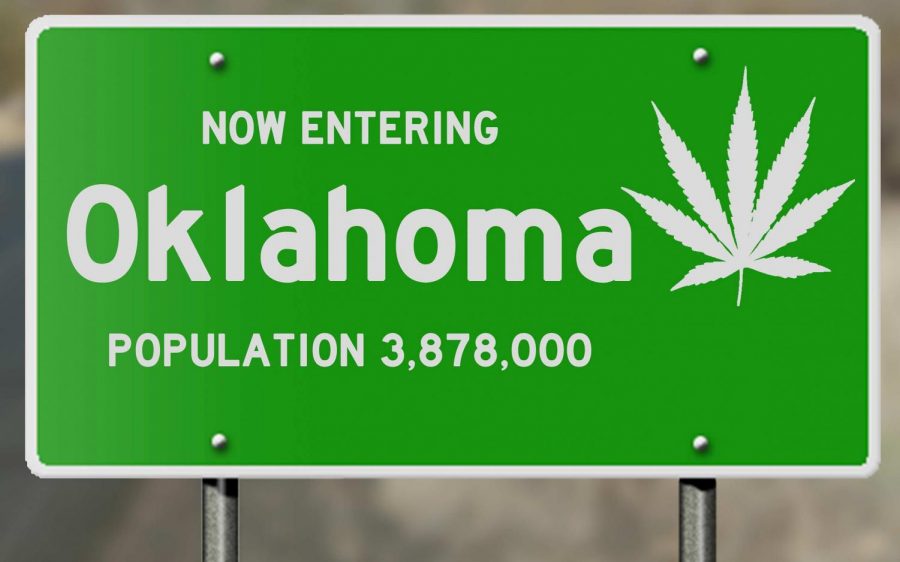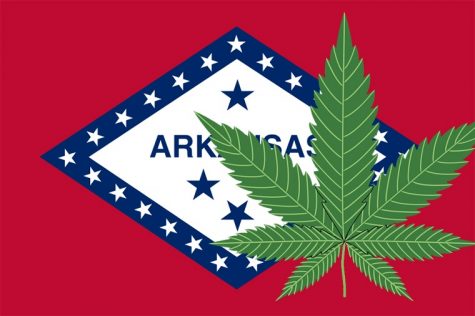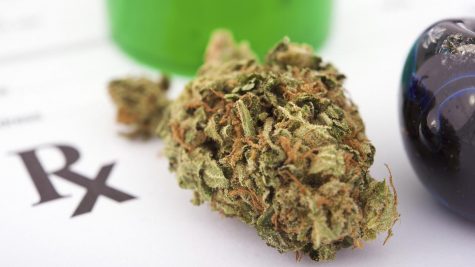Oklahoma’s medical cannabis industry raked in $18 million in revenue last month
A seven percent gross receipts tax is collected by the State of Oklahoma on all medical cannabis sales
According to tax officials in Oklahoma, medical cannabis sales reached $18 million last month. It’s not just sales revenue that is climbing but also, the number of patients who are being prescribed medicinal-grade pot as a treatment.
The cannabis plant’s primary cannabinoids tetrahydrocannabinol (THC) and cannabidiol (CBD) have gained global attention from doctors, scientists, cultivators, and processors, all of whom are seizing the opportunity to capitalize on the metamorphosing medical cannabis market in Oklahoma and beyond. Oklahoma’s medical cannabis sales figures for April 2019 reflect how strong the last six strong months have been for the state’s nascent legal weed industry. Cannabis revenue has steadily increased on a monthly basis since sales began.
Since August of 2018, one month after pharmaceutical-standard weed was legalized in “the Sooner State,” the Oklahoma Medical Marijuana Authority has confirmed that over 104,000 medical cannabis patient licenses have been accepted. Licenses have also been bestowed upon 2,700 commercial cannabis cultivators and 1,400 dispensaries.
With more Oklahoman’s being approved to treat their medical conditions and/or ailments with cannabis, not to mention the fact that there are thousands of growers providing thousands of dispensaries statewide with their product, the state’s sales revenue is sure to keep climbing.
Oklahoma’s medical cannabis sales are taxed at seven percent
 Based on a report released by the Oklahoma Tax Commission on Monday, May 6, the State of Oklahoma earned in excess of $1.2 million from cannabis excise taxes in April.
Based on a report released by the Oklahoma Tax Commission on Monday, May 6, the State of Oklahoma earned in excess of $1.2 million from cannabis excise taxes in April.
A seven percent gross receipts tax is collected by the State of Oklahoma on all medical cannabis sales. State and local government taxes are also imposed on sales.
In March, $870,000 was collected from the seven percent excise tax. This was in addition to the $1.2 million that was taxed by state and local governments on medical cannabis sales in Oklahoma during March.
Since Oklahoma’s dispensaries started selling bud inside brick-and-mortar stores in October of last year, cannabis sales have skyrocketed. December saw the state pull in $1 million in sales; this was the first full month of medical sales in Oklahoma. Sales in January topped $4.3 million and by the following month, sales surged to $7.2 million.
Oklahoma’s medical cannabis industry was launched in 2018
 Oklahoma went down in history for becoming the 30th U.S. state to legalize medical cannabis, after cannabis bill SQ 788 was approved in June 2018.
Oklahoma went down in history for becoming the 30th U.S. state to legalize medical cannabis, after cannabis bill SQ 788 was approved in June 2018.
In order to apply for a medical cannabis patient license, residents must be aged 18 or older. Hopeful applicants can obtain a recommendation from a physician who has registered to provide medical cannabis prescriptions to patients.
If and when approved, the patient can visit one of the state’s licensed dispensaries to procure their medication. Exceptions can sometimes be made for patients below the age of 18, as well as for non-residents.
Signing up to become a medical cannabis patient in Oklahoma
Anyone who is interested in enrolling for the state’s cannabis patient program can do so by visiting the Oklahoma Medical Marijuana Authority (OMMA) website. The website was launched as a means of overseeing the state’s medical cannabis program.
On the official OMMA website, applications can be filled out and submitted for review. Additionally, the website is a useful resource for physicians, patients, caregivers, cultivators, processors, and dispensaries.
Responsibilities assumed by the OMMA include licensing, regulating and administering the program in accordance with state law. Ensuring safe and sensible practices for Oklahomans is the main aim of the OMMA, which functions under the Oklahoma State Department of Health.











